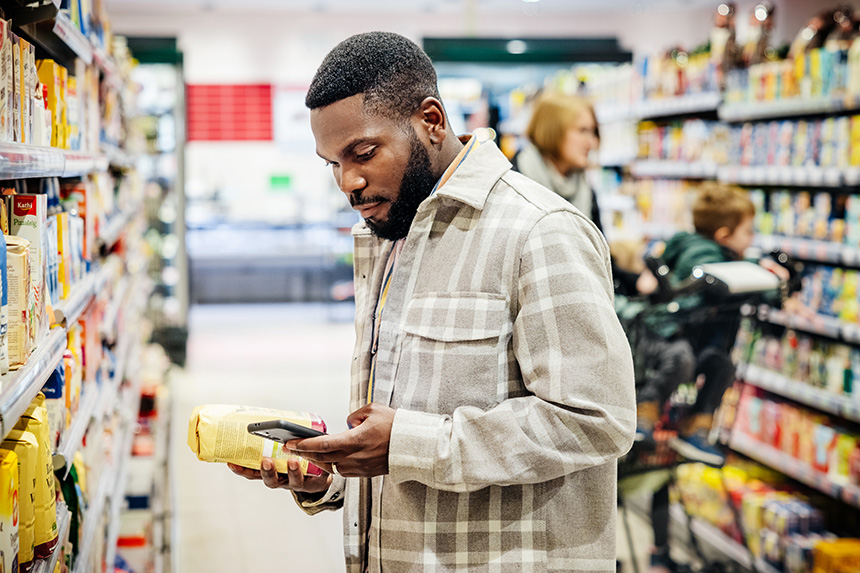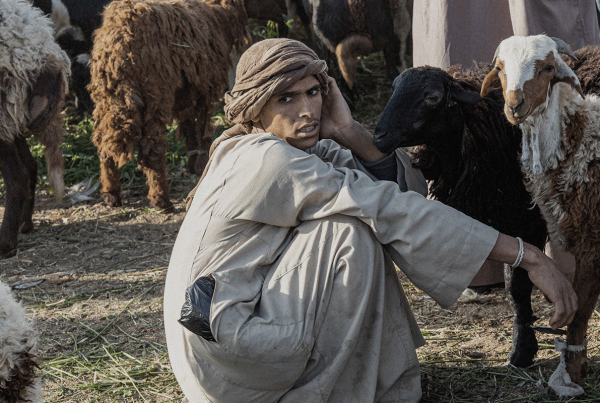I try to be a conscientious consumer. I buy second hand as often as possible — and not just clothing but things like household goods, tools, and home decor. I pay attention when a headline mentions a company with shady business practices. I don’t buy fast fashion from companies like Shien or Zara because I know there’s always a hidden cost to cheap clothes. I teach my kids that the concept of “value” has many layers and cheapest isn’t always best.
So when I began researching global supply chain issues, I went into it thinking I had a decent understanding of how to be an ethical consumer and of the issues of human trafficking and slavery in supply chains. What I discovered was that I had no concept of the scope of the issue.
The Scope of Slavery in Supply Chains
Here’s the hard truth: With the ubiquity of consumer goods and the widespread dependence on manufacturing and products imported from less regulated countries, it is nearly impossible to avoid complicity in human trafficking on some level. You cannot be a consumer today and completely steer clear of products made at the hand of an exploited person.
Cars, cell phones, solar panels, electric vehicles, computers, clothes, shoes, grocery items — all these rely on tainted supply chains, and the list goes on and on. Follow any product down the line far enough and, unless you grew or created it yourself, it’s likely it has touched modern-day-slavery at some point.
Industries like fashion, cosmetics, electronics, and agriculture all contribute to the 27.6 million people trapped in labor trafficking, as does the harvesting of raw materials like cocoa, cotton, and palm oil. Of that number, 12% of those are children. Additionally, it’s estimated that 3.9 million people are victims of state-imposed forced labor. This is the sad reality in today’s global economy.
And forced labor doesn’t only happen overseas. In the United States, workers are often exploited in food production. The top three food production categories that rely on exploited workers in the United States are meat, poultry, and eggs.
Top industries that use forced labor
This list includes some of the industries with the worst records for forced labor; however, forced labor can happen in any industry:
- Domestic work
- Agriculture
- Construction
- Manufacturing
- Fishing
- Textiles
- Pornography
Top goods that use forced labor
This list includes just some of the goods with the worst records for forced labor; however, forced labor is used in the production of countless goods:
- Bricks
- Gold
- Electronics
- Footwear
- Garments
- Cotton
- Cattle
- Cocoa
- Sugarcane
Source: 2022 List of Goods Produced by Child Labor or Forced Labor

A Case Study on Slavery in Supply Chains: The XUAR
In March of 2020, when global headlines were inundated with alarming news of the rapidly spreading COVID-19 virus, it was easy to miss the news of an equally alarming global story. The newly formed Congressional-Executive Commission on China released its first report on global supply chains, forced labor, and the Xinjiang Uyghur Autonomous Region (XUAR).
The report found that up to 1.8 million people in the XUAR were victims of severe human rights abuses, torture, and forced labor at the hands of the state. These were comprised mainly of ethnic Kazakhs, Kyrgyz, and other Muslim minorities who were part of mass interment camps labeled by the government as “job training” and “poverty alleviation.”
A large amount of the world’s goods originate from this region, and are believed to employ forced labor, including:
- Textiles
- Cotton
- Electronics
- Food products
- Shoes
- Tea
- Handicrafts
Any business that doesn’t want to have slave labor in their supply chains is advised by the US government to avoid sourcing goods from this region. However, the congressional report on the XUAR named 20 U.S. corporations suspected of “directly employing forced labor or sourcing from suppliers that are suspected of using forced labor.” Among them were Adidas, Calvin Klein, Coca-Cola, Costco, Kraft Heinz, H&M, Nike, Campbell Soup Co, Patagonia, and Tommy Hilfiger.
Legal Action Focused on Slavery in Supply Chains
As slavery in supply chains is a growing issue, what can be done about it? Some believe the best way to combat it is through legal action. In recent years, we’ve seen major cases involving large, well-known corporations.
In 2019, the human rights firm International Rights Advocates filed a lawsuit against Apple, Alphabet (Google), Dell, Microsoft, and Tesla. It accused the companies of complicity in the death and serious injury of children working in cobalt mines in their supply chain, having “specific knowledge” that the materials they used were linked to forced labor.
The defendants denied these accusations. The tech companies argued that they are not liable for what is occurring in the mines. They filed a joint motion to dismiss, claiming that the plaintiff’s allegations were based on “knowledge of a general problem in an industry” and therefore not sufficient grounds to hold them liable. The case is currently on appeal.
While, publicly, many large U.S. companies proudly emphasize their commitment to ethically sourcing materials, in reality, many corporations do little to ensure their suppliers are free of exploitation and forced labor. As this Reuter’s article explains, companies like Amazon, Apple, and Nike faced allegations of forced labor in their supply chain, but essentially ignored them. Amazon claimed to take action when they found proof of human rights abuses in their supply chain, Coca-Cola declined to comment, and other companies did not respond. Yet all of them continue to produce the products involved in the violation of human rights allegations. At the same time, companies who source products from the XUAR region of China simply aren’t able to do due dilligence because of the impossibility of obtaining accurate information from the region.
The legal waters surrounding human rights violations in global supply chains is murky at best. There are many questions and few concrete answers. Who bears ultimate responsibility for human rights violations? Is it the natural resource companies themselves, often based in a country where there is little to no government regulation or oversight? Or does the responsibility fall to the corporations buying supplies from the resource companies? Or is the onus ultimately on consumers to do their due diligence? With the complexity of the current global economy, is this even possible?

What Can We Do About It?
We’ve discussed slavery in supply chains as a global issue involving large corporations, but as individual consumers, our daily choices also make an impact. Combatting slavery in global supply chains may feel daunting, but there are some practical things we can do to make a difference.
1. Be a knowledgeable and conscientious consumer.
Here are a few good websites to learn about specific companies and how they address this issue.
KnowTheChain
KnowTheChain is a resource for companies and investors to understand and address forced labor risks within their global supply chains.
It is a collaborative partnership between global organizations that have significant expertise in addressing forced labor worldwide and is a project of Humanity United, a foundation dedicated to bringing new approaches to global problems that have long been considered intractable.
Good on You
Good on You is an organization founded in Australia that provides sustainable and ethical fashion brand ratings.
Freedom United
Freedom United is the largest modern anti-slavery community in the world. Their mission is to mobilize a united community to create power for change by making the public stakeholders in ending modern slavery.
2. Support legislative efforts to address slavery in supply chains.
International Human Rights Advocates
International Human Rights Advocates (IHRA) is a non-governmental, nonprofit organization, located in Washington, D.C., that provides legal support, lobbying assistance, and government relations services to individuals and human rights groups in the United States and abroad.
Business Supply Chain Transparency on Trafficking and Slavery Act of 2020
This bill requires certain issuers of securities to disclose their efforts to prevent the use of forced labor, slavery, trafficked persons, and child labor in their supply chains.
California Transparency in Supply Chains Act
The California Legislature enacted the California Transparency in Supply Chains Act in order to provide consumers with information regarding companies’ efforts to eradicate human trafficking and slavery from their product supply chains.
3. Champion businesses who proactively monitor their own supply chain.
The Exodus Road is in a unique position to help businesses begin their own investigative work on their supply chain. Using our extensive experience investigating human trafficking, as well as a variety of compiled data and resources, we have created a framework for analyzing risks and potential vulnerabilities in global supply chains.
The Exodus Road offers a Supply Chain Data Analysis for businesses to help highlight potential vulnerabilities in their supply chain and recommendations for action based on the findings. For more information on Supply Chain Data Analysis or for further questions, contact us at info@theexodusroad.com.
If you are a business owner, you can also join Free World Business Alliance, an alliance of businesses actively standing against child exploitation and human trafficking in our communities, our supply chains, and our world. Learn more here: https://theexodusroad.com/business-alliance/
Slavery in supply chains is a significant global issue and addressing it takes all of us. As the global marketplace grows, the issue of slavery in supply chains is gaining public awareness and attention. More awareness, more legislation, and more accountability are needed. Incremental shifts can result in long term change.
As overwhelming as the problem can seem, taking even a small step is better than staying paralyzed by the darkness. Doing your part — whatever you determine that might be — will help. Why not start today?







